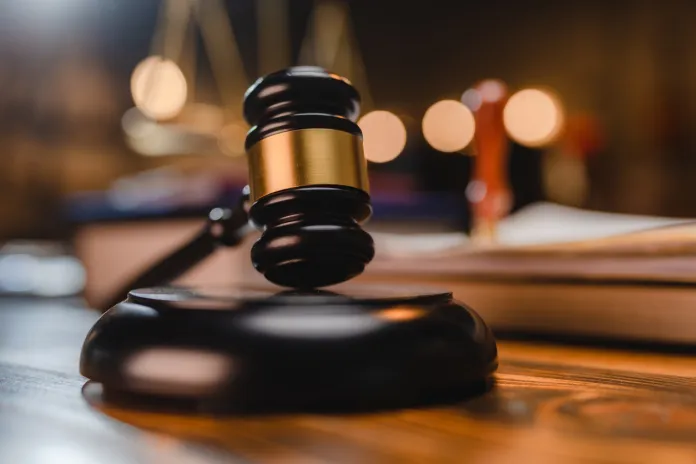Eat These Foods to Help Fight Hearing Loss
Research suggests that, in addition to lifestyle changes and what we eat, our ability to prevent or slow down aging may be affected by how we eat. hearing loss—but what exactly do we need to eat to protect our hearing?
Hearing Loss: Listen Up
Hearing loss: It’s a condition usually associated with aging. It is the third most A common chronic condition in the body in the United States—nearly twice the number of people who report diabetes or cancer suffer from it.
According to the National Institute on Deafness and Other Communication Disorders, this figure is approximately One in three Americans between 65 and 74 years old have hearing loss, and about half of people over 75 have hearing problems.
According to a 2016 study in BrazilHearing loss can also be caused by noise damage or exposure to toxic medications. An ear, disorders of hearing, and genetic predisposition.
It’s also “a growing problem among young people,” According to some studies, as much as 90% of the population are found in these areas. 18% of teens have measurable hearing lossBarbara Kelley (executive director of the Hearing Loss Association of America), said this in an email sent to The Epoch Times. Kelley stated that teen hearing loss could be noise-induced hearing loss “due in part to loud music, and earbuds and headphones.”
All ages can protect their hearing by avoiding loud, long-lasting sounds. Permanent hearing loss can be caused by loud music, leaf blowers, mowers, and other loud sounds. Reducing the amount of time you’re exposed to loud noise, and using ear protection like ear plugs or muffs, can help protect your hearing and decrease the amount of hearing you might lose as you age.
Research has shown that certain foods, supplements, and other substances may help to reduce noise exposure and delay hearing loss.
The use of nutrients may help to reduce hearing loss, whether it is noise-induced or aging-related.
Although hearing loss can be expected with age, it is possible to mitigate the danger by modifying certain factors.
“There are several lines of evidence that suggest that dietary intake of certain nutrients is related to the risk of hearing loss,” In an email to The Epoch Times, Dr. Sharon Curhan stated this. Curhan is a physician and epidemiologist at Brigham and Women’s Hospital and director of the Conservation of Hearing Study (CHEARS).
Curhan and her fellow colleagues It was found that certain nutrients and foods are more commonly consumed in higher amounts.https://www.ncbi.nlm.nih.gov/pmc/articles/PMC4625586/”>carotenoids Folate, beta-cryptoxanthine and betacarotene
, long-chain Omega-3 fatty acidsHigher hearing loss rates are associated with fish and other seafoods.Curhan stated that Curhan’s team also found out that vitamin C It may also improve blood flow in the ear.
But sometimes, it can be dangerous to have too many good things. “In our studies, we were surprised to find that very high vitamin C intake (so high that this is primarily achieved by taking supplements) was associated with a higher risk of hearing loss.”
Exposition to loud noises Inner ear cells are able to produce new cells. Free radicalsHearing loss can result from damage to the ear. Researchers from the University of Michigan suggested that vitamins A, C and E plus magnesium could help prevent hearing loss by decreasing the free radicals and noise-induced restrictions of blood flow to inner ears.
Researchers A study was conducted It was determined that pretreatment with vitamins C and E plus magnesium prior to exposure to loud sounds could help reduce noise-induced hearing impairment. The results revealed that the combination of vitamins A and C with E plus magnesium prevented nearly 80 percent noise-induced hearing loss in guineapigs.
The same combination of magnesium and antioxidants was also tested in a Study of Swedish military personnel Service-related noise exposure. Although the results were encouraging, no conclusions were made regarding the protection of the ears. An additional Study on Humans It was done. Participants received the same four micronutrients before exposure to noise. However, the supplement didn’t have any effect noise-induced changes of hearing.
Folic acid might also help prevent hearing loss. Studies have linked hearing loss to folate deficiency and high levels of homocysteineAn amino acid. Folate and vitamins B12, B6, along with vitamin B12 and B6, help to break down homocysteine. This allows your body to make other chemicals. Homocysteine highs can also indicate a vitamin deficiency, which could increase your risk for heart disease, stroke, dementia, and other health problems such as cardiovascular disease.
Research suggests that folate supplementation could potentially lower your risk of hearing loss as you age.
The arsenal of tools against hearing loss includes Omega-3 fatty acid. A 2014 Study Curhan and her associates found that increased intake of omega-3 polyunsaturated fat acids and regular fish consumption are linked to a lower risk for hearing loss. Other studies have confirmed the protective role of omega-3 fatty acid in preventing hearing loss, including the Brazilian study.
Healthy Eating
Curhan said that although supplements are readily available over-the counter, Curhan believes there is no current way to get them. “insufficient evidence” To prevent hearing loss, she will recommend certain supplements. Foods rich in nutrients are the best way to ensure hearing protection.
“We found that eating an overall healthy diet, such as a diet that resembles the Mediterranean diet or the DASH diet, is associated with a lower risk of hearing loss,” She spoke.
What can you eat to keep your ears and hear healthy?
Vitamin A-rich foods, including:
- Green, leafy green vegetables
- Vegetables in orange and yellow
- Red bell pepper
- Milk
- Beef liver
- Fish oil
The following foods are rich in vitamin C:
- Red pepper
- Citrus fruit
- Kiwi fruit
- Strawberries
- Broccoli
- Cantaloupe
Vitamin E-rich foods, such as:
- Wheat germ oil
- Almonds
- Sunflower seeds
- Pine nuts
- Avocado
- Peanut butter
- Fish
Magnesium These foods can be found:
- Pumpkin seeds
- Almonds
- Spinach
- Cashews
- Peanuts
- Black beans
These items will provide your folate:
- Dark green, leafy vegetables
- Beans
- Peanuts
- Sunflower seeds
- Fresh fruits, fruit juices
- Whole grains
- Liver
- Seafood
- Eggs
Omega-3 fatty acid:
- Fish
- Whole grains
- Nuts
- Leafy green vegetables
- Oils (e.g. oils (e.g. canola. flaxseed. cod liver).
" Conservative News Daily does not always share or support the views and opinions expressed here; they are just those of the writer."





